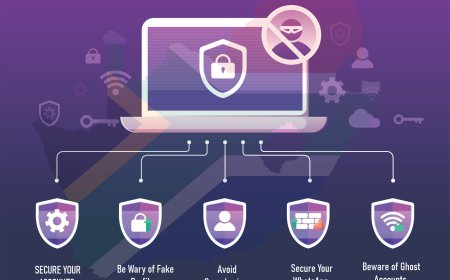The Top Viruses Plaguing Zimbabwe in 2024 Infographic
To mitigate the impact of these viruses, it is crucial for African users to exercise caution when downloading software, clicking on links, and using unofficial messaging apps. Staying vigilant, using antivirus software, and keeping devices and software up-to-date are essential steps in protecting against these digital threats.

In the ever-evolving landscape of cybersecurity, Africa has faced its fair share of digital threats in recent years. As we enter 2024, it is crucial to shed light on the most prominent viruses that have reportedly been attacking the continent, their sources, and the impact they can have on unsuspecting users.
- Trojan Viruses: Source: Trojan viruses are often found in cracked or pirated software, as well as in malicious email attachments and downloads from untrusted websites. These viruses can grant cybercriminals remote access to infected devices, allowing them to steal sensitive information, monitor user activities, and even hold data for ransom.
Impact: Trojan viruses can have devastating consequences for individuals and organizations, leading to financial losses, identity theft, and the compromise of sensitive data. They can also be used as a gateway for further malicious activities, such as the installation of additional malware. Spread: Trojan viruses can spread through social media platforms, where users may inadvertently share infected links or files. They can also be distributed through unofficial messaging apps like WhatsApp GB, where users may download modified versions of the app that contain malicious code.
- Worm Viruses: Source: Worm viruses are self-replicating malware that can spread through networks, often exploiting vulnerabilities in software or operating systems. These viruses can be found in compromised websites, infected email attachments, and even shared files on peer-to-peer networks. Impact: Worm viruses can cause significant disruption by consuming system resources, slowing down or crashing devices, and potentially giving attackers access to sensitive information or the ability to control infected systems remotely. Spread: Worm viruses can spread rapidly through social media platforms, where users may unknowingly share infected content. They can also propagate through unofficial messaging apps like WhatsApp GB, as users may download modified versions of the app that contain the malicious code.
- Spyware: Source: Spyware is a type of malware that is designed to secretly monitor and collect user data, such as browsing history, login credentials, and personal information. Spyware can be found in free software downloads, compromised websites, and even in seemingly legitimate mobile apps. Impact: Spyware can lead to the theft of sensitive information, including financial data and personal identities. This can result in financial losses, fraud, and the violation of user privacy. Spread: Spyware can spread through social media platforms, where users may download infected applications or click on malicious links. It can also be distributed through unofficial messaging apps like WhatsApp GB, where users may unknowingly install modified versions of the app that contain spyware.
- Zombie Viruses: Source: Zombie viruses, also known as botnets, are networks of infected devices that are under the control of cybercriminals. These viruses can be found in a variety of sources, including compromised websites, infected software, and even through the exploitation of vulnerabilities in Internet of Things (IoT) devices. Impact: Zombie viruses can be used to launch coordinated attacks, such as distributed denial-of-service (DDoS) attacks, spam campaigns, and the theft of sensitive information. They can also be used as a platform for further malicious activities, such as the deployment of additional malware. Spread: Zombie viruses can spread through social media platforms, where users may unknowingly share infected content or download compromised applications. They can also be distributed through unofficial messaging apps like WhatsApp GB, as users may install modified versions of the app that contain the malicious code.
 To mitigate the impact of these viruses, it is crucial for African users to exercise caution when downloading software, clicking on links, and using unofficial messaging apps. Staying vigilant, using antivirus software, and keeping devices and software up-to-date are essential steps in protecting against these digital threats.
To mitigate the impact of these viruses, it is crucial for African users to exercise caution when downloading software, clicking on links, and using unofficial messaging apps. Staying vigilant, using antivirus software, and keeping devices and software up-to-date are essential steps in protecting against these digital threats.
Files
What's Your Reaction?
 Like
0
Like
0
 Dislike
0
Dislike
0
 Love
0
Love
0
 Funny
0
Funny
0
 Angry
0
Angry
0
 Sad
0
Sad
0
 Wow
0
Wow
0










































